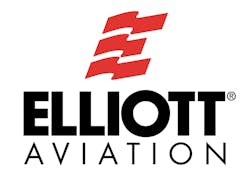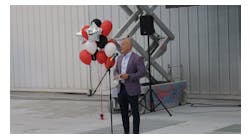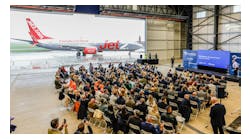NDT Level III: The Highest Level of Certification is Ever Evolving
NDT, or nondestructive testing, is a scheduled and unscheduled maintenance practice that evaluates materials without causing damage. The importance of the practice of NDT is to find defects before they become catastrophic. NDT is currently practiced in at least eight industries, including aerospace, construction, defense, lab, petro/chemical, ship, steel/foundry, utility and power. While the aerospace industry consists of only 26 percent of all NDT professionals, it has high level of potential catastrophic failures due to massive amounts of pressure and stress to aircraft in a short amount of time. With many legacy aircraft in service and constantly evolving materials, it is now, more than ever, imperative to have an NDT Level III managing your team of NDT professionals.
As the highest level of certification, NDT Level III involves extensive testing and experience. For non-engineers, this includes having a minimum of four years per method of NDT of on-the-job-training, applying with ASNT, and taking their tests for numerous methods of NDT applications. As a Level III, you are required to maintain continuing education that monitors the evolution of the program, including current trends, current equipment, current methods and intimate knowledge of new materials like alloys, composites and exotics.
With NDT, however, qualification is always greater than certification. The more experience you have, the more you know what to look for. That is why it is important to have a proper apprenticeship program in place with an NDT Level III as a mentor. During an apprenticeship, a Level III should challenge their team to find defects. They should also show, from experience, typical stress areas in materials, including where certain materials tend to crack. A proper apprenticeship program should also cover an in-depth understanding of characteristics of different metals including their makeup and how they were manufactured.
If you are considering an area of specialty to study, do not overlook a career path toward NDT Level III. The number of Level III’s that are retiring are outnumbering the number certifying. It is a highly sought after skill set and a business that will not go away or be replaced by robots.
Brian McKenzie started with Elliott Aviation in 2007 as a Quality Control Inspector and led the development of Elliott Aviation’s Accessory Shop in 2011. He received his A&P in 2004, IA in 2009 and ASNT NDT Level III in 2010. He has coached 16 people through NDT II level certification in the past three years. Brian started his career in the U.S. Navy where he was part of the fixed wing and rotor wing maintenance and aircrew. He has maintained airframes and components on a diverse number of aircraft including Beechcraft products, Gulfstreams, Citations, Falcons and helicopters. Brian has also worked for Aero Air, Evergreen International, Flightcraft and Jet Services Inc.
Elliott Aviation is a second-generation, family-owned business aviation company offering a complete menu of high quality products and services including aircraft sales, avionics service & installations, aircraft maintenance, accessory repair & overhaul, paint and interior, charter and aircraft management. Serving the business aviation industry nationally and internationally, it has facilities in Moline, IL; Des Moines, IA; and Minneapolis, MN. The company is a member of the Pinnacle Air Network, National Business Aviation Association (NBAA), National Air Transportation Association (NATA), and National Aircraft Resale Association (NARA).




